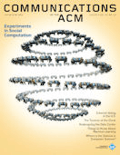
COMMUNICATIONS OF THE ACM
Scope & Guideline
Connecting Ideas, Inspiring Innovation
Introduction
Aims and Scopes
- Artificial Intelligence and Machine Learning:
The journal covers advancements in AI and machine learning, including algorithms, applications, and ethical considerations, reflecting the growing importance of these technologies in various sectors. - Cybersecurity and Privacy:
Research on cybersecurity threats, mitigation strategies, and privacy-preserving technologies is a core focus, highlighting the increasing need for secure computing environments. - Human-Computer Interaction (HCI):
The journal emphasizes the design and evaluation of user interfaces and user experiences, aiming to improve the interaction between humans and computers. - Data Science and Big Data:
Publications explore methodologies for data analysis, including statistical techniques and machine learning, as well as the implications of big data on society and business. - Software Engineering and Development Practices:
Research on software engineering methodologies, tools, and practices is prevalent, addressing challenges in software development, testing, and maintenance. - Ethics and Social Implications of Computing:
The journal features discussions on the ethical implications of technology, including debates on fairness, accountability, and the societal impacts of computing. - Emerging Technologies:
Explorations of new technologies such as quantum computing, IoT, and blockchain are included, showcasing innovations that could disrupt traditional computing paradigms. - Education in Computing:
Research focusing on computer science education, curriculum development, and strategies to enhance learning outcomes in computing disciplines is a significant area of interest.
Trending and Emerging
- Artificial Intelligence Ethics:
There is a notable increase in discussions surrounding the ethical implications of AI technologies, including bias, transparency, and accountability, highlighting the need for responsible AI development. - Remote Work and Collaboration Technologies:
Research focusing on the technologies that facilitate remote work and collaboration has surged, especially in the wake of the COVID-19 pandemic, emphasizing the importance of digital communication tools. - Sustainability in Computing:
Emerging themes around green computing and the environmental impact of technology are gaining traction, with research exploring sustainable practices in computing. - Interdisciplinary Approaches to Computing:
There is a growing trend towards interdisciplinary research that combines computing with other fields, such as healthcare, social sciences, and environmental studies, reflecting the need for collaborative solutions to complex problems. - Quantum Computing Advances:
Research in quantum computing is on the rise, with increased interest in both theoretical aspects and practical applications, indicating a shift towards exploring this transformative technology.
Declining or Waning
- Traditional Programming Paradigms:
The focus on classical programming techniques and paradigms is waning as newer methodologies and languages emerge, leading to a decreased emphasis on older practices. - Hardware-Centric Research:
With the rise of cloud computing and software-defined infrastructure, traditional hardware-focused research has seen a decline, as more attention shifts towards software solutions. - Legacy Systems and Maintenance:
Research on maintaining and upgrading legacy systems is becoming less prominent, as organizations increasingly move towards modern, cloud-based solutions. - Theoretical Computer Science:
While still relevant, the emphasis on pure theoretical aspects of computer science appears to be diminishing, as applied research and practical applications take precedence.
Similar Journals
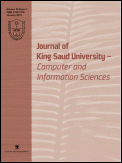
Journal of King Saud University-Computer and Information Sciences
Leading the Charge in Cutting-edge ResearchJournal of King Saud University-Computer and Information Sciences, published by ELSEVIER, is a prestigious open-access journal focusing on the rapidly evolving fields of computer science and information technology. Since its inception in 1996, this journal has provided a platform for high-quality research and innovative ideas, promoting the dissemination of knowledge to a global audience. With a remarkable impact factor and ranked Q1 in the Computer Science (miscellaneous) category as of 2023, it stands among the top 11% of journals in its field, reflecting its commitment to excellence and relevance. The journal proudly carries the ISSN 1319-1578 and E-ISSN 2213-1248, and it is based in Saudi Arabia while being part of a global academic network. With a Scopus rank of #26 out of 232 in general computer science, the Journal of King Saud University-Computer and Information Sciences is an essential resource for researchers, professionals, and students seeking to stay at the forefront of technological advancement. As it continues to thrive through 2024, it invites contributions that will shape the future of computing and information sciences.
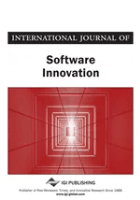
International Journal of Software Innovation
Innovating the Future of Computer Science, One Article at a Time.The International Journal of Software Innovation, published by IGI Global, serves as a crucial platform for disseminating cutting-edge research in the field of software engineering and innovation. With its ISSN 2166-7160 and E-ISSN 2166-7179, this journal has a broad scope that encompasses multiple areas of computer science, including Artificial Intelligence, Computer Graphics and Computer-Aided Design, Computer Networks and Communications, Software, and Computer Science Applications. Since its inception in 2017 and continuing until 2024, the journal has established itself in Q4 quartiles across various categories, reflecting both emerging trends and foundational principles in software innovation. Although it does not currently follow an Open Access model, its findings are vital for researchers, professionals, and students aiming to understand and contribute to the evolving landscape of software technologies. Located in the United States at 701 E Chocolate Ave, Ste 200, Hershey, PA 17033-1240, this journal not only offers research insight but also encourages collaboration and knowledge sharing among scholars worldwide.
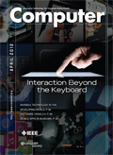
COMPUTER
Uncovering Pioneering Ideas in Technology and Computing.COMPUTER, published by the IEEE COMPUTER SOC, stands as a pivotal resource in the field of computer science, encompassing a broad range of topics and innovations within the industry. With an ISSN of 0018-9162 and E-ISSN 1558-0814, this esteemed journal features high-impact research articles that contribute significantly to the advancement of technology, demonstrating a prestigious Q1 classification in the Computer Science (miscellaneous) category for 2023. Positioned within the top percentile of Scopus rankings (ranked #84 out of 232), COMPUTER serves as an essential platform for sharing pioneering ideas and emerging trends that shape the future of computing. Although it does not currently offer open access, the journal's rigorous peer-review process ensures the publication of high-quality content. Researchers, professionals, and students alike will find invaluable insights into computer science developments from 1970 through 2024, making it a vital tool for anyone dedicated to this ever-evolving field.

Computers
Shaping the Future of Digital InteractionsComputers is a leading journal published by MDPI, dedicated to advancing research in the fields of computer networks and communications, as well as human-computer interaction. Since its inception in 2012, it has established itself as a vital resource for scholars and practitioners, achieving an impressive Q2 ranking in Computer Networks and Communications and a Q3 ranking in Human-Computer Interaction as of 2023. The journal is indexed in Scopus, highlighting its relevance with a rank of #135/395 and #72/145 in their respective categories. Published in Switzerland, this open-access journal ensures widespread dissemination of research findings, supporting the global academic community in enhancing technologies relevant to computer science. Access options are available, fostering an environment where knowledge is shared freely. With an emphasis on innovation, redesign, and collaboration between humans and technology, Computers plays a crucial role in shaping the future of digital interactions.

Frontiers in Big Data
Empowering Innovation in Data ScienceFrontiers in Big Data, published by Frontiers Media SA in Switzerland, is a leading open access journal that has established itself as a vital resource for scholars and practitioners in the expanding realms of artificial intelligence, computer science, and information systems since its inception in 2018. With an impressive impact factor reflected in its Q2 rankings across multiple categories, including Artificial Intelligence, Computer Science (Miscellaneous), and Information Systems, this journal serves as a pivotal platform for disseminating groundbreaking research and promoting interdisciplinary collaboration. The journal's commitment to open access ensures that high-quality research is readily accessible to a global audience, fostering the exchange of innovative ideas and advancements in big data technologies. By creating an inclusive space for diverse perspectives, Frontiers in Big Data aims to bridge the gap between theoretical research and practical application, making it an essential read for anyone invested in the future of data science.
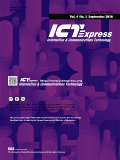
ICT Express
Leading the Charge in Cutting-edge ICT ResearchICT Express is a leading open-access journal published by Elsevier that has established itself at the forefront of the fields of Artificial Intelligence, Computer Networks and Communications, Hardware and Architecture, Information Systems, and Software. Since its inception in 2015, this South Korea-based journal has provided a vital platform for disseminating innovative research and practical applications across these rapidly evolving domains. With an impressive impact factor and consistently high Scopus rankings—placing it in the top quartiles of its categories—it attracts contributions from both seasoned experts and emerging scholars. Current access options ensure that groundbreaking findings are readily available to a global audience, thus fostering collaboration and advancement in technology and computational sciences. As ICT continues to reshape various industries, the significance of research published in ICT Express is crucial for staying ahead in the digital landscape.
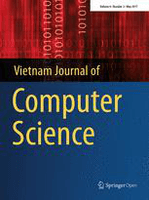
Vietnam Journal of Computer Science
Connecting scholars and professionals in the realm of computer science.Vietnam Journal of Computer Science, published by World Scientific Publishing Co Pte Ltd, serves as a prominent platform for researchers and professionals in the rapidly evolving field of computer science. Launched as an Open Access journal in 2013, it aims to disseminate high-quality research across various subfields, including Artificial Intelligence, Computational Theory and Mathematics, Computer Vision, and Information Systems. With its ISSN 2196-8888 and E-ISSN 2196-8896, the journal provides valuable insights and contributes to the growing body of knowledge in computer science, particularly in Southeast Asia. Despite its relatively recent establishment, the journal has achieved significant rankings, including Q3 status in multiple categories and notable visibility in Scopus metrics, evidencing its commitment to fostering innovative research. This journal is essential for those looking to stay at the forefront of computational advancements and applications, particularly in Vietnam and beyond, facilitating an engaging dialogue among scholars and industry professionals.

Applied Computer Systems
Transforming Ideas into Technological ApplicationsApplied Computer Systems is a distinguished journal published by SCIENDO, specializing in the dynamic field of computer science and technology. With the ISSN 2255-8683 and E-ISSN 2255-8691, this Open Access journal has been committed to disseminating high-quality research since 2008, ensuring global accessibility for researchers and practitioners alike. Hailing from Warsaw, Poland, the journal serves as a crucial platform for innovative studies that delve into applied computing methodologies and their diverse applications across industries. By maintaining rigorous peer-review standards, Applied Computer Systems supports the advancement of knowledge in computing, making it an essential resource for students, professionals, and academics seeking to stay at the forefront of technological progress. Engage with a community dedicated to exploring the integration of computer systems in a rapidly evolving digital landscape.

CONNECTION SCIENCE
Unlocking New Dimensions in Connection ScienceCONNECTION SCIENCE, published by Taylor & Francis Ltd, is a premier open-access journal in the fields of Artificial Intelligence, Human-Computer Interaction, and Software Engineering, with an impressive history dating back to 1989. With an aim to foster innovative research and breakthroughs, this journal serves as a vital platform for scholars and practitioners seeking to publish and disseminate their findings. As of 2023, CONNECTION SCIENCE proudly holds a Q2 ranking in all three categories, reflecting its significance and influence within the academic community, supported further by robust Scopus rankings placing it in top percentiles across the disciplines. In addition to its extensive service to the global research community, it has transitioned to open access since 2022, enhancing the accessibility of high-impact research to a wider audience. For anyone involved in these dynamic fields, CONNECTION SCIENCE is crucial for keeping up with trends, theories, and practical applications that drive the future of technology and artificial intelligence.
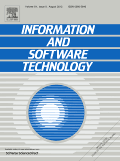
INFORMATION AND SOFTWARE TECHNOLOGY
Elevating Research Standards in Information and Software TechnologyINFORMATION AND SOFTWARE TECHNOLOGY, published by Elsevier, is a leading journal that stands at the forefront of the fields of software engineering, information systems, and computer science applications. Since its inception in 1970 and with a focus extending to 2025, this esteemed publication has made significant contributions to the discourse on technological advancements and innovations. In 2023, it has achieved a remarkable Q1 categorization across multiple domains, including Computer Science Applications, Information Systems, and Software, reflecting its excellence and relevance in the academic community. With Scopus rankings that place it in the top percentiles in its categories (85th, 83rd, and 83rd respectively), the journal serves as an essential platform for researchers, professionals, and students eager to disseminate and engage with cutting-edge research and developments. While it does not currently offer Open Access options, the knowledge curated within its pages remains invaluable for advancing the fields of information technology and software development.